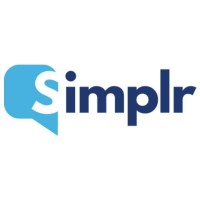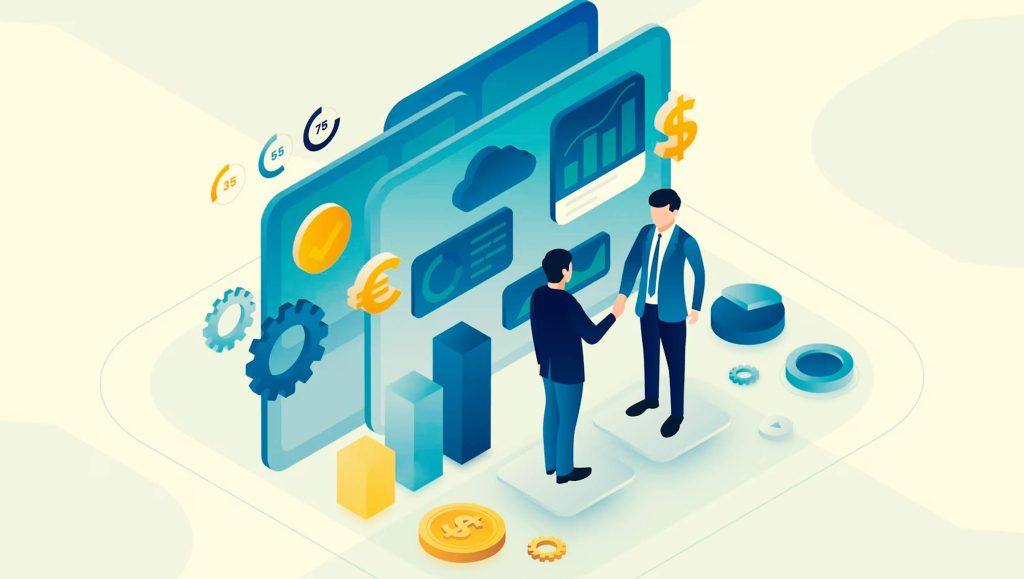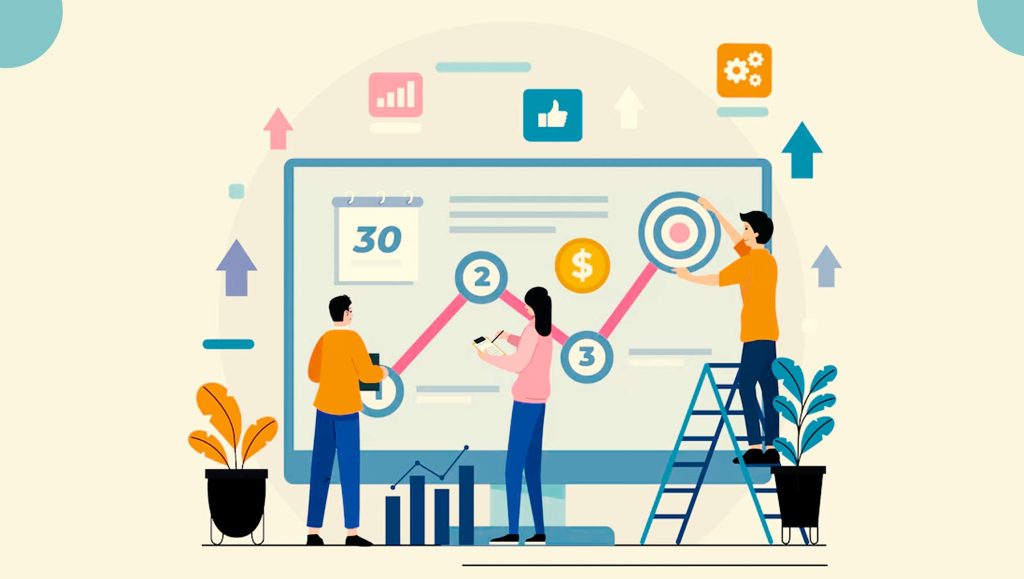One of the biggest outcomes of the Covid-19 pandemic on workplace or “marketing and sales’’ culture is that companies worldwide will now acknowledge that many of the activities undertaken for marketing and sales don’t need to be done via face to face client meetings. That’s why video communication will be here to stay. Daniel Rodriguez, Chief Marketing Officer at Simplr shares more in this chat with SalesTechStar:
____
Welcome to SalesTechStar Daniel! Let’s start with your biggest marketing and sales lessons and moments from your time in the industry so far!
Now that I have been leading marketing teams for 8 years, I’m starting to see some patterns! There’s no such thing as over-communicating, both internally and externally. The key is to not get too bored by repeating yourself. Often times we want to say something different next quarter because we’re bored by our own voice…but no one else out there has heard it yet.
Read More: SalesTechStar Interview with Sanjay Gala, CEO and Founder at SMARTe
How has the ongoing Covid-19 pandemic changed how you and your team have redefined your sales / marketing processes or outreach for the rest of the year?
In early April, we divided our marketing effort into two teams: Tiger Team and Endurance Team.
The Tiger Team was charged with revving up the immediate pipeline, with a cold outreach strategy narrowly focused on a list of a few hundred companies that were a great first for our on-demand customer success staffing solution because they were experiencing a demand surge for their products.
The Endurance Team was charged with creating long-term content marketing and community-building initiatives. This strategy is based on the “give-give-get” strategy and that’s definitely a long-game. Of course, communicating this strategy to the rest of the senior leadership team was critical, as their marketing focus was initially based on the short-term.
Having distinct short-term and long-term approaches is proving beneficial to fueling the pipeline and also giving our team a clear path forward.
How would you advise B2B and tech sales teams to revisit their overall sales processes during a global downtime caused by a health pandemic? Can you tell us a little about you’ve been seeing leading companies do during this time?
Our partners including leading retail brands, all of which have been hyper-focused on customer service as a pathway to success during this pandemic. This is critically important, particularly in light of the fact that in our recent State of CX Survey, 27% of consumers told us that customer service wait times on digital channels during COVID-19 have caused their brand loyalty to waver.
The risk of losing a meaningful amount of customers due to sub-par CX is real. It can cost five times more to attract a new customer than to retain an existing one, and with so much uncertainty lately, you really have to keep your loyal customers….loyal. And CX is a big driver of loyalty: 96% of customers say customer service is important in their choice of loyalty to a brand.
Read More: BrightTALK Helps Marketers Build And Execute Winning Demand Generation Programs
What that means is that companies are increasingly serving customers over digital channels to keep up with demand. So you’re seeing a lot more brands offering chat, for example, in addition to email.
Digital channels, however, like chat come with their own unique challenges. Think about it: turning on a channel like chat means retailers have more staffing requirements to meet the needs of customers shopping online all day/everyday. So while these retailers endeavor to provide really great customer service, many are having a hard time covering those highly popular online shopping hours of 5pm to midnight.
Compounding this issue, chat is far less forgiving when it comes to response time. And while some retailers are relying on chat bots to save the day, the reality is that many consumers want that empathy and relatability that only a human can provide. If a retailer is out of an item that I had my heart set on giving my wife for our anniversary, I want to connect with a human to find out when it will be in stock and frankly, someone who can relate on some level to my dilemma. And I’m not alone. Going back to our State of CX Study, 41% of companies scored high on a reliability scale but when it came to the chat channel, only 36% of companies scored high.
Those brands that are incorporating the human element into their chat channel are seeing higher customer satisfaction during this pandemic – and happy customers are invaluable right now.
B2B sales is known for its long sales cycles – during a downtime, long prospecting cycles or sales cycles can burn resources more; how can marketing and sales teams use other mediums (content marketing efforts, creative LinkedIn outreach, video prospecting, etc) to cut through the noise and shorten buying cycles during a downtime – a challenge on a challenge?
I think that so much technology is being used to give people wider reach and to lower the cost of interacting with someone, but it comes at the cost of being very impersonal and generic— whether that’s email marketing or blast LI messages or a chatbot on a website. Ironically, in B2B marketing, where in many cases the customer is exponentially more valuable than in B2C because they are paying you hundreds of thousands of dollars per year, people should really feel the love when interacting with your brand. But often times people’s favorite brands are consumer brands, where there are hundreds of thousands of customers. In B2B, where there are maybe only hundreds of customers, why do we make people feel like they don’t matter as much?
It is crucial for teams / businesses to ensure a seamless customer experience today while ensuring existing customers are given the right level of service – how can businesses ensure they reduce churn during this time especially when the global pandemic is causing its share of core risks and challenges already.
Everybody hates a customer service ticket backlog— your customers certainly do because they don’t feel valued and have to wait for days to hear back, your employees do because it’s soul-crushing to deal with so many unhappy customers, and it makes CX leaders look bad because CSAT suffers. If we ended backlogs, the world would be a happier place.
As a tech leader, in a challenging environment due to the Covid19 pandemic: what are some of the ways in which you are enabling a balanced remote work culture while maintaining motivation levels among marketing and sales reps?!
We’re in this for the long haul, which means that good habits around setting boundaries is important. Three things that we’re doing: we respect people’s Slack calendar and if they are out of working hours (whatever those hours are based on scheduling needs) then they shouldn’t be disturbed; we’re encouraging vacations (even if they are staycations) and doing a bi-weekly meditation session for everyone in the company who is interested.
Read More: SalesTechStar Interview with Jafar Syed, Chief Growth Officer at Uniphore
Sales and Marketing Is Transforming Everyday, Catch these Interesting Podcasts where Leaders from Outreach, DemandBase, PipeDrive and more share their observations;
Simplr is upending the traditional customer service model by providing premium brands with flexible, 24/7 on-demand specialists for all digital channels. The company’s specialists are a unique work-from-home pool of highly educated professionals who use Simplr’s AI-powered platform to replicate tone and brand integrity with speed, empathy and precision. Award-winning CSAT scores, combined with pay-per-resolution pricing, have led to significant growth over the past year. A subsidiary of Asurion, Simplr works with top brands in retail, technology and restaurants.
Daniel Rodriguez is the head of marketing at Simplr, which is upending the traditional customer service model by providing premium brands with flexible, 24/7 on-demand specialists for all digital channels. The company’s specialists are a unique work-from-home pool of highly educated professionals who use Simplr’s AI-powered platform to replicate tone and brand integrity with speed, empathy and precision. Daniel has extensive marketing and entrepreneurial experience, having served as the VP of Marketing for Seismic and the co-founder of multiple companies including Indivly Magic and PrizeTube. Daniel earned a BA in Economics from Harvard University and an MBA from MIT.
















